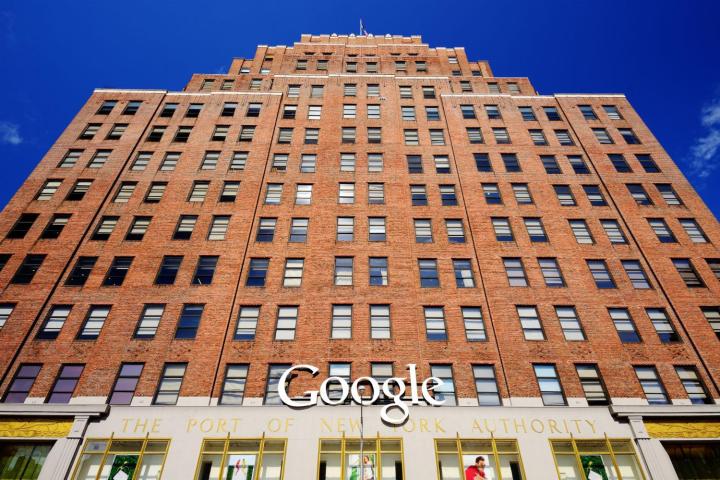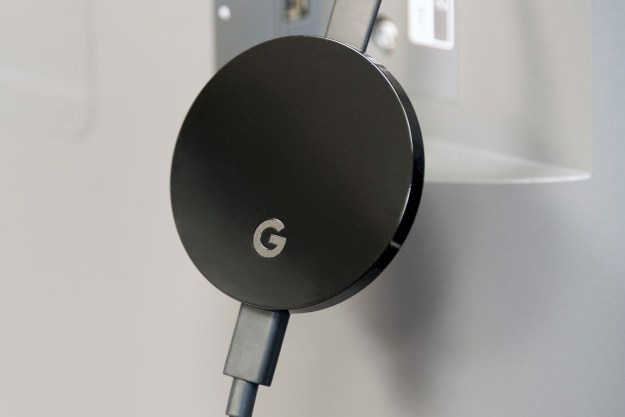
When it comes to the heated debate over Net neutrality, Google is putting on the white hat, and painting itself as the hero of the story. The company recently released a blog post regarding the expansion of its lightning-fast Google Fiber service, implicitly promising that the service will be the champion of streaming services like Netflix. So who’s the subtly implied villain in the tale? Comcast, of course, the company currently under fire for its ‘pay-for-speed’ deal with Netflix, among other things.
The story, as you might expect, is much more complicated than all that. But the basic gist of Google’s message is the promise that its new Fiber service, which will directly compete with Internet service providers like Comcast and Verizon, will not charge content providers “like YouTube, Netflix, and Akamai” for partnerships in order to give those companies speedier, more direct links into your home. Instead, it will offer those partnerships completely free of charge.
Internet service providers, the ones that show up on your monthly bill, generally don’t have a lot to do with the vast majority of the long journey your video packets make from servers, such as those in Netflix’s own facilities, across the thousands of miles of plains, mountains, and valleys to end up at your TV. Those providers mostly deal with what’s called the ‘last mile’, or the direct link from the Web’s pipelines into those connected to your home.
Google has promised to freely offer high-bandwidth content providers like Netflix direct links to its Fiber service’s last mile, as well as to ‘colocate’ Netflix’s own servers inside Fiber facilities, saving a lot of miles for all those broken up video packets to travel, and assuring faster connection and better quality streaming for you. If that sounds familiar, its because it’s virtually exactly what Comcast, as well as Verizon, offered Netflix through their highly controversial paid agreements, which Netflix agreed to, and later denounced as unfair and an affront to a fair and equal Internet for all.
Comcast has been under more pressure for its paid prioritization deal with Netflix than Verizon, not only because the company is the owner of a heap of media services, including a little broadcast company and content provider called NBCUniversal, but also because it is looking to merge with Time Warner Cable to become an even more powerful colossus. To make things worse, Comcast and other large ISPs like Verizon and AT&T have also been accused of purposely throttling video streams from Netflix and others, in order to gain leverage to push through such pay-for-speed deals.
The public spat between Netflix and Comcast has pushed the entire idea of paid priority for content providers with deep pockets into the spotlight, leading to a boiling point as the FCC, and its chairman Tom Wheeler, recently hashed out new FCC regulations which left those deals open. Consumer advocates and large tech firms like Google and Amazon have spoken out publicly against the new regulations as too lenient, claiming they will stifle innovation and lead to unfair advantages for companies already established.
Thanks to all that attention, with Fiber, Google is able do a lot of things that may be good for innovation online, but are also very good for Google. The company calls its way of doing business online “win-win-win.’ In its post, Google claims that creating free connection deals with companies like Netflix and others is good for those content providers because they can deliver high quality HD streams, and move into the 4K streaming future – which, at Google Fiber speeds will be much more plausible. It’s also good for consumers who get better speeds without fear of their monthly bills rising. And, of course, it’s good for Google, because as the company put it, “it saves us money (it’s easier to transport video traffic from a local server than it is to transport it thousands of miles).”
We’d argue that there are a few more ‘wins’ to add to Google’s column under its vision for the future of the Internet. Not only does the company look good, (it’s already perennially in the top 5 of the Harris Poll) but it also stands to steal a whole lot of Comcast customers if and when it moves into those markets. It also has an interest in FCC regulations against paid priority because, as noted ISP expert Ray Burns points out in a blog post, Google, and a lot of other companies, already pay ISPs for transit themselves. It’s kind of how the Internet works, and has been for a long time. In fact, Burns’ Streaming Media blog shows a list of some of the nation’s top companies, and which big ISPs they pay for higher speed prioritization, outlined below.
| AT&T | Comcast | Verizon | CenturyLink | Sprint | |
| X | X | X | X | X | |
| Amazon | X | X | X | ||
| X | X | X | X | ||
| Akamai | X | X | X | X | X |
| Microsoft | X | X | X | X | |
| Netflix | X | X | X | ||
| Limelight | X | X | X | X | X |
| Pandora | X | ||||
| Ebay | X | X | X | X | |
| Apple | X | X |
It’s commendable, and we’d argue very important, that Google, and other large tech firms speak out to protect the little guy online. But let’s not forget that, like Comcast, Google is HUMONGOUS, and holds the keys to massive media and telecommunications institutions like Youtube and Android, as well as arguably ushering more data and personal information about all of us than any institution in existence. It knows everything about us, owns incredible amounts of media real estate, and does strange things, like building weird secret barges off the coast of San Francisco.
That’s not to say that we don’t want Google Fiber, and its uber-fast connection speeds, in our neighborhood. We do. And free peering, or the sharing of transit connections, with companies like Netflix just makes sense – especially on the consumer side. Still, it’s important to remember that while the massive conglomerate that is Comcast (often voted as one of the most hated companies in America) is the easy bully in this affair, Google itself is a dynasty of immeasurable proportions.
So far, as proven by Wednesday’s blog post, Google has ostensibly remained a kind and just Lord of the Internet, fighting for us, the consumer, as well as for our favorite services, and smaller companies that are looking to get some skin in the game. But as the company overtakes more and more mediums, from our first launching point with every Internet wave we surf, to the very pipelines that bring the Web into our homes, let’s all hope Google stays on the consumer side of justice, and continues to wear that white hat.
Editors' Recommendations
- What is Google TV? Here’s everything you need to know
- Google Chromecast tips and tricks to make you a master caster
- Google TV may add ‘free channels’ — which you almost certainly already have
- HBO Max proves your ISP can make a streaming offer you can’t refuse
- Amazon Prime, YouTube, and Netflix agree to throttle streaming quality in Europe


